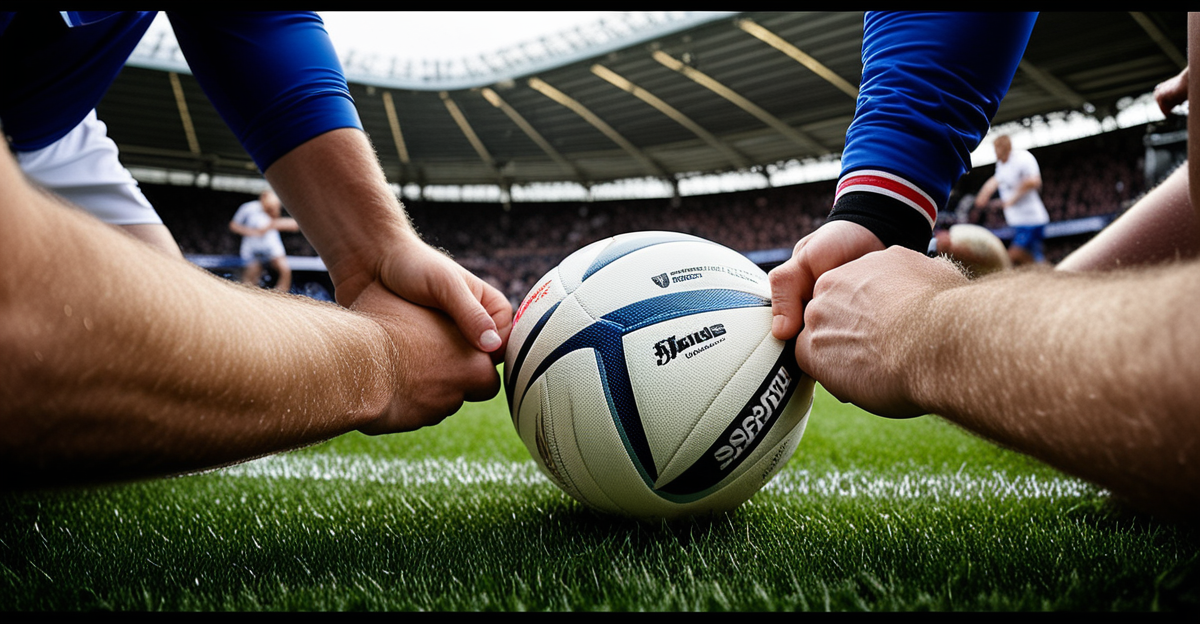The Relationship Between UK Sports and National Identity
Sports in the UK are deeply entwined with national identity, acting as a mirror reflecting collective values and sentiments. Major UK sports such as football, rugby, and cricket have long been central to fostering a shared sense of belonging and pride across different communities. This bonding effect often intensifies during significant matches or tournaments, when the nation collectively rallies behind its teams.
The cultural influence of UK sports extends beyond the games themselves. Sporting events become platforms for expressing national pride through anthems, flags, and chants, further solidifying a unified identity. Yet, this unity is not always absolute. Sometimes, sports can highlight regional differences or provoke division, particularly when rivalries between England, Scotland, Wales, and Northern Ireland come to the fore.
In the same genre : What Are the Economic Contributions of UK Sports to the National GDP?
Importantly, sports do more than just reflect public sentiment; they also shape it. Success or failure on the field can significantly impact national mood, influencing how citizens perceive their country’s stature at home and abroad. The dynamic interplay between UK sports and national identity, therefore, serves as a powerful force for both cohesion and cultural expression.
Historical Development of Sports and Identity in the UK
The history of UK sports reveals how deeply intertwined athletic pursuits are with the evolution of national identity. Football, rugby, and cricket emerged not merely as games but as pillars of British culture through the 19th and early 20th centuries. These sports became communal rituals that transcended class and region, helping to unify a diverse population under shared traditions.
Have you seen this : How Has the Evolution of Sports Technology Impacted UK Athletes’ Performance?
Key historical milestones include football’s codification in the mid-1800s, rugby’s institutional split between union and league forms, and cricket’s establishment as the “gentleman’s game.” Each milestone reinforced both national and regional pride, as sporting achievements symbolized broader cultural values like fair play, resilience, and teamwork.
Early media coverage amplified these developments by creating compelling sporting narratives. Newspapers and radio broadcasts popularized major events, allowing public sentiment to coalesce around teams representing different parts of the UK. The sports heritage established during this period laid the foundation for the strong emotional connections British people feel toward their national and regional teams today, showcasing how sport is key to expressing and shaping identity.
Historical Development of Sports and Identity in the UK
The history of UK sports is intricately linked to the evolution of national identity, with football, rugby, and cricket playing vital roles. Football emerged in the 19th century as the working-class game, quickly becoming a cultural cornerstone that united communities and fostered regional pride. Rugby, meanwhile, developed distinct identities, especially in Wales, where it became a symbol of national resilience and spirit. Cricket’s long-standing tradition reflected British values of sportsmanship and fair play, reinforcing a collective heritage during both local matches and imperial contests.
Historical milestones, such as the formation of official governing bodies and the advent of international competitions, marked significant moments when sports strongly connected with national and regional pride. Early media coverage amplified football’s reach, crafting narratives that elevated players to near-mythical status and made matches into events of national importance. The media’s role was crucial—it shaped public perception, turning local sports into a key element of British culture. Thus, the sports heritage of the UK is not merely about games played but about embedding cultural identity across generations, setting the stage for contemporary expressions of national pride through sports.
The Relationship Between UK Sports and National Identity
UK sports hold a unique position in shaping and expressing national identity, functioning as both a reflection and driver of collective sentiment. Major sports such as football, rugby, and cricket play crucial roles in symbolizing national pride. During high-stakes matches, the nation often unites in support, reinforcing a shared cultural solidarity. This unity manifests through rituals like singing anthems, waving flags, and communal chants, demonstrating the deep cultural influence sports exert on public life.
Yet, the relationship is complex. Sports can reveal regional disparities or fuel rivalries within the UK, highlighting tensions between England, Scotland, Wales, and Northern Ireland. While these moments can challenge unity, they also foster a nuanced appreciation of diverse identities under the UK umbrella.
Sporting events do not just mirror public mood; they influence it too. Victories tend to elevate national confidence and pride, while losses might prompt reflection and debate about the country’s global position. Thus, UK sports act as a dynamic arena where national identity is continuously negotiated, celebrated, and redefined, embodying both the unifying spirit and the cultural complexities of the nation.
The Relationship Between UK Sports and National Identity
UK sports are pivotal in shaping and expressing national identity. Football, rugby, and cricket do more than entertain; they reflect collective values and influence public sentiment. When England’s football team scores or Wales triumphs in rugby, it stirs a profound sense of national pride that transcends everyday life. Sporting events become moments where identity feels tangible, especially during international competitions, where fans unite behind their flags and anthems.
This connection is not merely symbolic but deeply psychological. Fans see their teams as embodiments of cultural narratives—resilience, fair play, and community spirit. These emotions foster solidarity but sometimes reveal regional tensions, particularly between the home nations. Rivalries can underscore differences even as sports seek to unify.
Moreover, UK sports actively shape public sentiment over time. Wins can boost national morale, while defeats may spark reflection or debate about broader social issues. For example, successes in football or rugby often ignite discussions on national character and shared goals. In this way, sports serve as both a mirror and a moulder of how Britons perceive their identity—dynamic, diverse, and deeply rooted in tradition yet responsive to contemporary challenges.
The Relationship Between UK Sports and National Identity
UK sports serve as a potent medium through which national identity is both expressed and shaped, intertwining with public sentiment in profound ways. The cultural influence of major sports—especially football, rugby, and cricket—goes beyond entertainment; these sports act as symbols of national pride and collective identity. For instance, important matches often trigger an outpouring of national emotion, where rituals like singing anthems and waving flags unite fans across the country.
How do these sporting events reflect national unity or division? On one hand, they demonstrate solidarity as supporters rally behind national teams, reinforcing common values and affirming a shared sense of belonging. On the other hand, UK sports mirror underlying regional distinctions, with intense rivalries particularly observable between England, Scotland, Wales, and Northern Ireland. These rivalries can sometimes challenge unity but also highlight the rich mosaic of identities within the UK.
Beyond symbolic expression, sports actively shape national mood. Victories boost national pride, enhancing feelings of confidence and cohesion, while defeats can prompt reflection on identity and values. Thus, the relationship between UK sports and national identity is complex and dynamic, capturing both unity and diversity within British culture.
The Relationship Between UK Sports and National Identity
UK sports play a central role in shaping and expressing national identity, particularly through the cultural influence of football, rugby, and cricket. These sports serve as powerful symbols of national pride, often uniting communities across the country. Sporting events function as collective experiences where people rally behind their teams, demonstrating solidarity through chants, anthems, and display of national colours.
How do UK sports influence public sentiment? They act as both mirrors and moulders of collective emotions. Victories boost morale and reinforce a positive view of the nation’s character, while defeats can prompt reflection on broader social or cultural challenges faced by the UK. This interplay highlights how sports shape evolving perceptions of identity.
While sporting events typically symbolize national unity, they can also expose divisions. Regional rivalries—such as those between England and Scotland or Wales and Northern Ireland—underscore distinct local identities within the UK. These competitions reveal the layered and sometimes contested nature of national identity. Ultimately, UK sports reflect a dynamic relationship where unity and diversity coexist, making the cultural influence of sports a key factor in understanding national pride today.
The Relationship Between UK Sports and National Identity
UK sports hold a profound place in shaping national identity, serving as vivid expressions of shared culture and collective pride. Sports like football, rugby, and cricket are more than pastimes; they are key arenas where public sentiment and cultural belonging come alive. These major sports embody national pride, creating moments where communities unite in spirited support, reinforcing feelings of solidarity.
But how exactly do UK sports reflect this national identity? Sporting events often act as a mirror, showcasing collective emotions and national stories, from resilience to determination. They symbolize unity when fans across regions rally behind their teams, yet also reveal complexities such as regional rivalries. For example, the contrasting allegiances within football or rugby highlight underlying cultural distinctions among England, Scotland, Wales, and Northern Ireland, underscoring the rich mosaic within the UK.
Moreover, beyond reflecting sentiment, UK sports actively shape public feeling. Victories can lift national morale and bolster pride, while losses prompt reflection on identity and societal values. The cultural influence of these sports extends to rituals—singing anthems, displaying flags—and storytelling that reinforces community bonds. Thus, UK sports intertwine deeply with national identity, simultaneously reflecting and molding the collective consciousness of the country.










